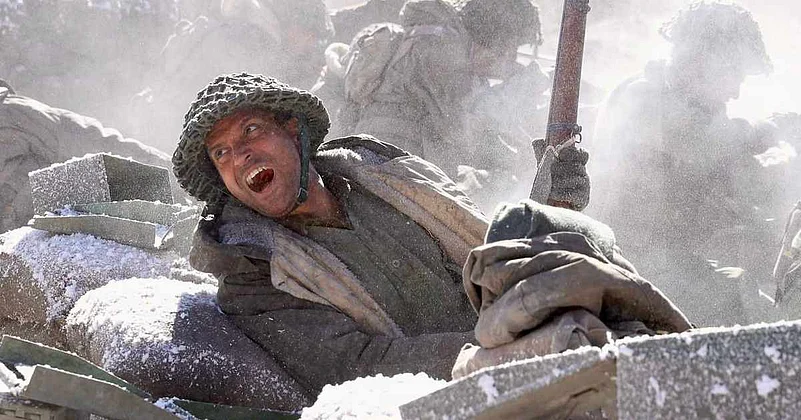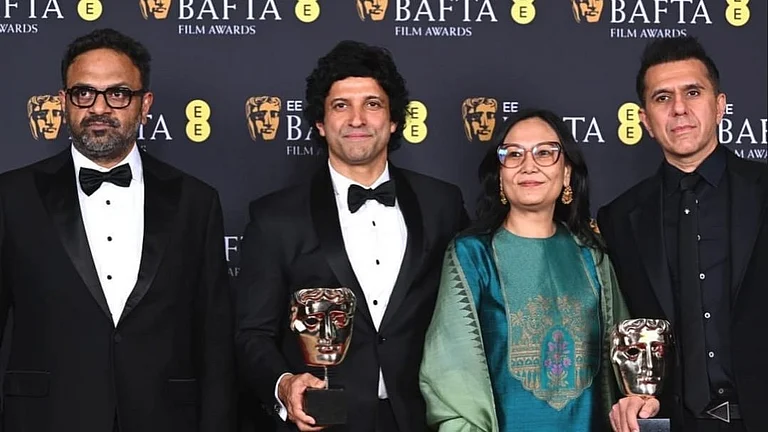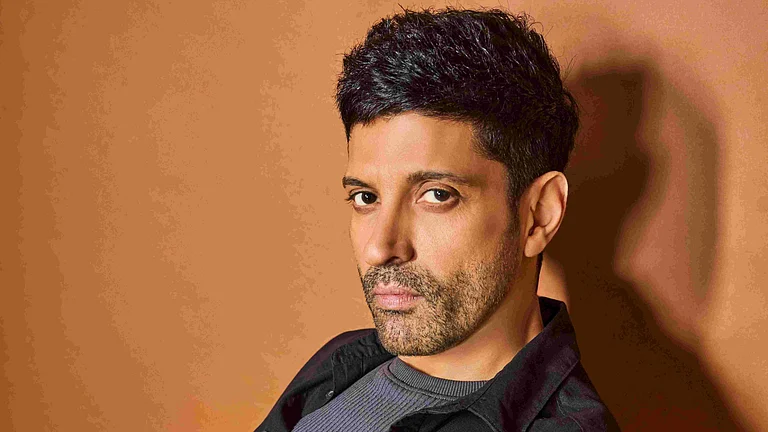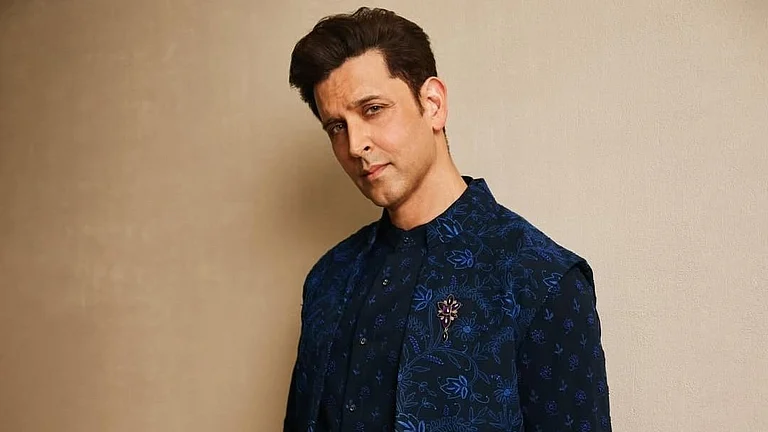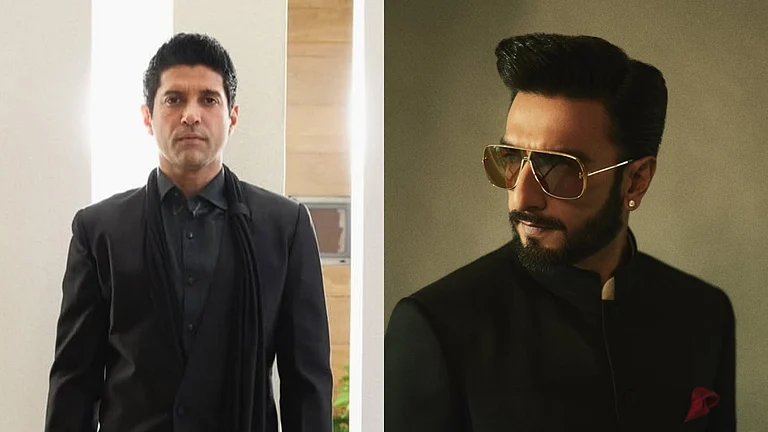
Summary of this article
Farhan Akhtar is terribly miscast in 120 Bahadur, where only his regular persona gets reflected.
The film zeroes in on the Battle at Rezang La in Ladakh's outer reaches.
It is directed by Razneesh Ghai.
It’s ironic that a crucial facet of Razneesh Ghai’s 120 Bahadur hinges on speculation whether the battle in question had even happened. A sole survivor from the 1962 Sino-Indian warring clash at Rezang La returns to tell the tale. Delirious from PTSD, the radio operator Ramchander (Sparsh Wali) recounts the horrors he witnessed which undergo examination by superiors. His testimony provides the narrative bones. But the film is struck down in being inherently unpersuasive. Swiveling around Major Shaitan Singh (Farhan Akhtar), its dramatic progression is as ridden with formula as awkward melodrama.
A moment of kindled tenderness between bickering friends is designed to pre-empt tragedy. You know this has been underlined solely because it will not last. Something will erupt. 120 Bahadur telegraphs cresting drama, every beat of valor lest you miss it. Even the Major’s introduction involves an elaborate tactic that is displayed only to be invoked later on. The payoff of every decision can be spotted from a mile. Similarly, Ghai relies on songs as flashbacks, merely to ground the soldiers’ family ties, the memory of home. One character’s remembrances tie into a collective nostalgia. What could have been bittersweet and moving feels labored. Confronted always with mortality, the soldiers forgo their own intimate considerations and surrender themselves wholly to their homeland, both present and future.

There’s too much orchestration, the film demanding emotional affiliations upon the most lazily strung personal equations. A heroic narrative like this ought to make its many contained bonds seem plausible and enduring. Ramchander is the entry-point, the guide through friendships that are propped up as if to cue wrenching resolutions in the climax. Every single intention is hammered. Before the Major orders his platoons to proceed despite being severely outnumbered by Chinese regiments, the odds are spelt out umpteen times. The Major’s advances might seem rashly emotional, but the lesson here is clear. Loving commitment to the nation must raze over every other logical want. Of course, women are an afterthought. Raashii Khanna plays Shaitan’s wife who merely pops up in the songs and reinforces his faith in duty to homeland. She comes again to dutifully shed a few tears.
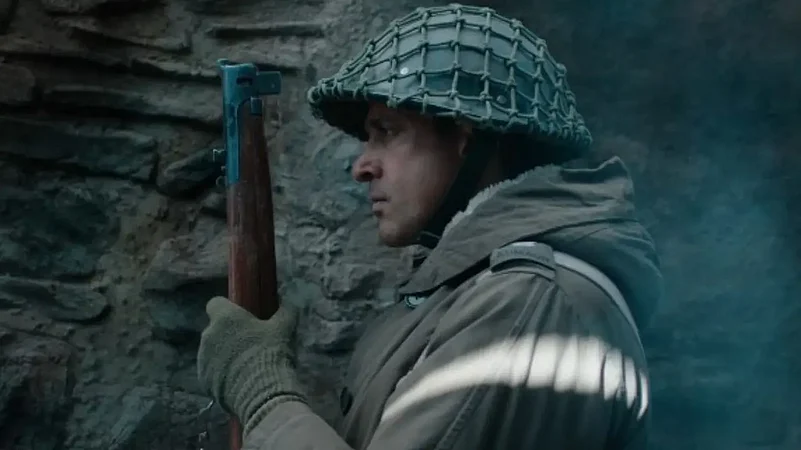
The biggest nail in the coffin is Akhtar’s casting. For all his earnestness, the actor’s persona registers too overtly, unable to merge into the Major’s gusto. Several dissonances poke between him and the character. He strains and gestures vigorously, but the rousing speechifying remains at a remove. When the Major tries to drum up bravery and passion in the platoons, it’s Akhtar’s practiced demeanor sticking out. You can gauge how stiffly he’s projecting a certain exhortation. Akhtar glowers a lot.
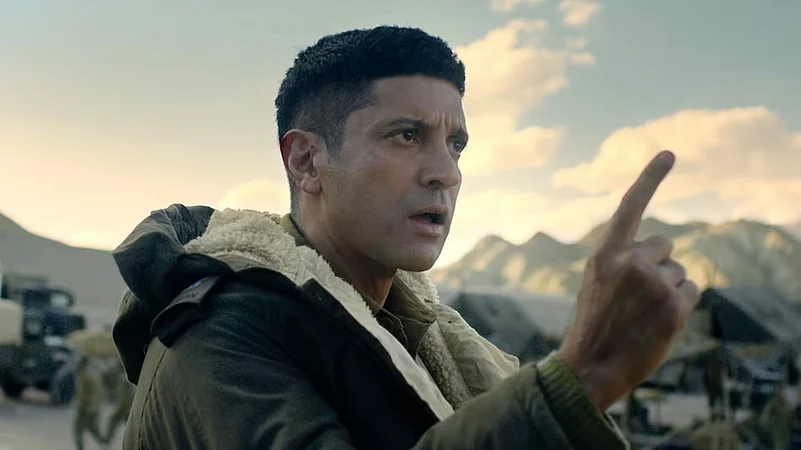
Ghai is complacent to operate from a pose of mannered simplicity. Talk of military strategies is dangled only to segue into the Rezang La battle. Naturally, caricatures fill in for the Chinese side, who don’t hesitate to shoot at their own vulnerable ilk. Inconsistencies scatter throughout. Initially, the Chinese dialogues are tackily dubbed in Hindi. Soon enough, the makers retain the original language. Yet, it doesn’t take away from gratingly exaggerated sketches. Unlike them, the Indian jawans are tightly bound in brotherhood, looking out for each other till their final moments. Their generosity is sharply contrasted against the Chinese small-mindedness. However, all of this is a generic muddle at most. The soldiers blur into each other, cast in models of village naivete that’s carried into the site of duty. Yes, some of it is meant to signal a shared nature given the bulk of Major’s Charlie Company is made up of the Ahir community. This lends the film a perfect excuse to exult in chest-thumping caste pride. Everyone gloats in it. Shaitan taps caste zeal to make his men forge forth. The same extends to his own Rajput pride. None of his emotions crack through the surface. What’s stressed instead is his immunity to biting cold.
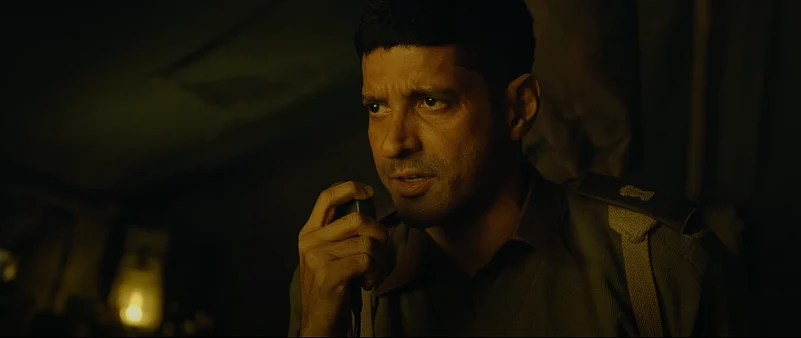
For its entire first half, 120 Bahadur trudges through set-up, wasting away in such patently problematic declarations. Once things pick up furiously post-interval, DP Tetsuo Nagata leans fully into the snowy, desolate vastness of the Ladakh setting as hostilities escalate. The filmmaking shakes off limpness, scaling into frantic, over-enthused motion. But this can barely cover up sheer ridiculousness on display, replete with a chorus set to a fallen soldier’s memory. Its mid-point jolt from an indulgent spirit to direct offensive doesn’t cohere with the power and punch it imagines.



